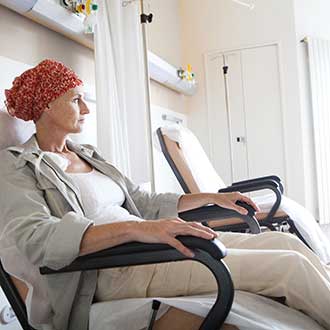Cancer Care through a Pandemic

With the arrival of the coronavirus, Wayne UNC Health Care – and hospitals across the country – postponed non-urgent appointments and procedures to reduce traffic in the hospital and slow the spread of the virus. As a cancer patient, you may be wondering whether it’s even safe to enter the hospital or your doctor’s office.
Unfortunately, cancer doesn’t know that there is a pandemic. Continuing to see your doctor and moving forward with your treatment are vitally important to your treatment plan. And if you’re newly diagnosed, it’s often critical to get care as quickly as possible.
At Wayne UNC Health Care, we are committed to delivering safe, quality care and supporting a healing environment. As we’ve grown in our understanding of COVID-19, we have put in place cleaning and safety protocols, so you can receive the care you need, when you need it most.
Protecting You
At Wayne UNC, we are protecting you and our team by:
- Enhancing our screening for COVID-19 symptoms prior to appointments and upon entering the facility.
- Treating all COVID-positive patients in isolation, within COVID-only units.
- Providing a hospital-grade mask to all patients and teammates.
- Requiring patient drop off for treatment. We have closed our waiting rooms.
- Removing unnecessary objects from our wing, like magazines, books, toys and small furniture.
- Cleaning and sanitizing high-touch and common surfaces regularly and making hand sanitizer available.
- Performing hand hygiene after handling paperwork, cash, credit cards, licenses and insurance cards.
- Decreasing the number of chairs in our clinic and spacing them more than six feet apart
- Spacing appointments out to avoid overlap.
Protecting Yourself
Some patients with cancer have weakened immune systems due to their underlying condition or treatment. Having a weakened immune system can make it harder to fight off diseases.
To lower your risk of contracting coronavirus, we recommend that you maintain social distancing, wear a mask when you’re out of the house, wash your hands well and often, avoid touching your face and eyes and avoid group settings.
If you develop symptoms of COVID-19 – such as a higher fever, dry cough, fatigue or shortness of breath – call your provider. They can offer guidance about whether to stay home and see how your symptoms progress, or whether you need immediate medical attention.
If you have specific concerns and need to know whether you should continue treatment now, please contact your provider.